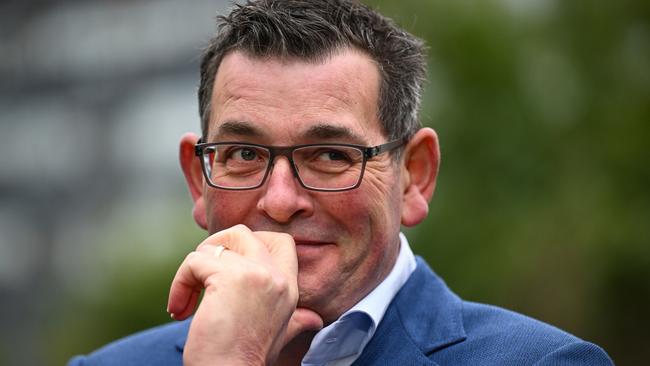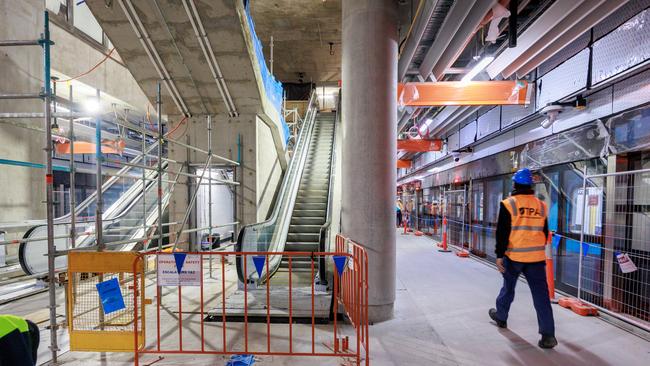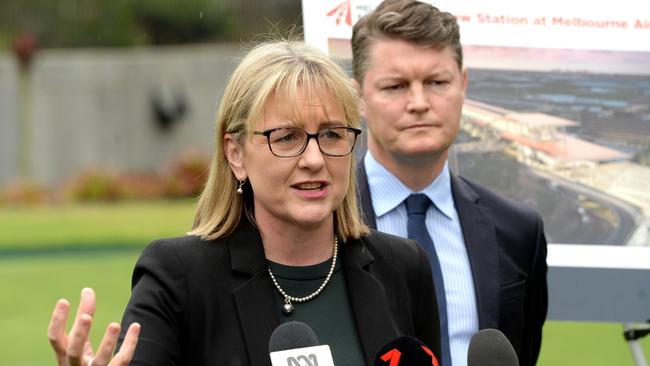Shannon Deery: Daniel Andrews’ exit marks end of an era in Victorian politics
Despite an autocratic leadership style, a string of controversies and crushing lockdowns, Dan Andrews has maintained a level of loyalty among the electorate. That can’t be guaranteed for his successor.
Opinion
Don't miss out on the headlines from Opinion. Followed categories will be added to My News.
Daniel Andrews’ exit from politics was, in many ways, the worst kept secret on Spring St.
It was also the best kept secret: because precisely when it came remained a mystery almost until the minute he announced the news himself.
Even some Labor backbenchers were blindsided by the news.
But despite his insistence that he would contest the 2026 election, no one believed that to be true.
As early as June, government insiders were speaking of an imminent exit for Victoria’s fourth longest-serving premier.
That is to suggest that exit planning had been well under way for some months.
There had been a clearing of the decks for some time which signalled the writing was very much on the wall.

Take the scrapping of the Commonwealth Games, a move clearly designed to take the mess away from Andrews’ ultimate successor.
Then there were rumblings from inside the Cabinet that Andrews had taken much more of a back seat approach to policy decisions than he had at any other time during his leadership.
In the lead up to last week’s housing statement announcement, Andrews told senior industry people it would be his last significant announcement.
Andrews won’t speak of his legacy.
But his bold infrastructure agenda and socially progressive politics has driven wholesale change across the state.
Public drunkenness has been decriminalised, we’ve seen the introduction of a spent convictions scheme and ban on change or suppression conversion practices.
There’s been reforms on issues including voluntary assisted dying, safe access zones for women’s health services, childhood vaccination, and medicinal cannabis.
There’s also been rental law reforms, the banning of puppy farms and pet store sales, and the introduction of free kinder.

We’ve made huge inroads to tackling domestic violence, and a historic deal was reached with traditional owners to see Victoria become the first state to begin treaty negotiations.
Last week’s housing statement will change planning in the state for generations.
More than level crossing removals have been completed, the Metro rail project is ahead of schedule, North East link is under way.
But the commitment to a massive infrastructure agenda has come at great cost.
It has been contingent on massive borrowings at low interest rates which has contributed to now record debt levels.
Victoria’s economic outlook is perhaps Andrews’ legacy of greatest consequence.
Like that which was left to Joan Kirner by John Cain in the early 1990s, Andrews’ successor will be handed an economic mess.

Jacinta Allan, from the Premier’s socialist left faction, and Ben Carroll, from the party’s right, are the only two ministers tipped to challenge for the top job.
In December a dramatic factional shift saw seven of the party’s formally Right-aligned MPs to the Socialist Left.
It was, for many, the first sign that Andrews was planning an exit.
It boosted his grip on power, cemented the Socialist Left as the dominant faction within power, and should have killed off the prospects of any challenger to Allan.
For Carroll to get over the line, should he choose to run, he’ll need the backing of the party’s rank and file members.
Whoever comes next will have to manage a caucus desperate for some breathing space caused by the internal pressure which Andrews’ autocratic style of leadership created.
The discipline his style of rule demanded will be no longer, and the stability that Labor has enjoyed will no longer be guaranteed.
Daniel Andrews led Labor to a third term in government despite enforcing crushing lockdowns on Victorians during a two-year pandemic.
Both Labor, and Andrews himself, suffered swings against them.
He has maintained a level of loyalty and popularity among the electorate.
That can’t be guaranteed for his successor.
Which means his political exit spells the end of an era, and a new dawn for Victoria’s political landscape.



